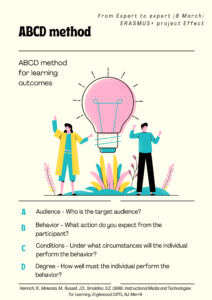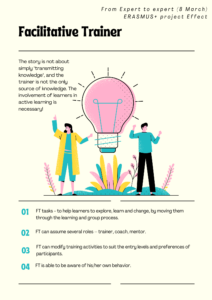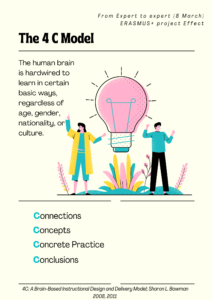In the beginning of March we gathered again via online for the second part of our short-term training event, which originally should have taken place in Latvia. The first part of this event happened in the beginning of August 2020. Then it became really clear that we can not travel and we decided to continue via online – our virtual travel was about to begin! Since that we have stayed on this track!
This has not always been easy but opened up another world for international cooperation, full of challenges and experiences – until now there has been a lot of talk about digital skills and their importance. But now they are essential for making it work. And all our partners have worked hard. But in relation to our project and it’s main aim it is not anymore only about the challenge to co-operate via online, the global pandemic has changed our vision about the training process as well – we are working especially hard to adapt it to the “new reality” and maintain the benefits of face-to-face trainings.
We are now in the phase of curriculum development, where we have ready the first version of learning outcomes, main principles and each country’s training plans.
This time we organised the short-term training event so that every partner organisation could share the methods/approaches of their training plans, which others wanted to know more about. So it was like a methods fair and from expert to expert session. All concluded to “steal something from another” due the fact they got interested to use it in their training plans as well. This captured one of the main ideas of this cooperation project – to share and gain professional expertise from different country partners educational training organisations. With the bigger aim to develop a curriculum with the focus on learning efficiency and helping to support teachers/educators who are involved with learners, who might not have that good earlier learning experiences and learning skills.
From our session we found it especially interesting – the ABCD method, the 4 C model and the roles of the facilitative trainer.
Have closer look on following posts!



